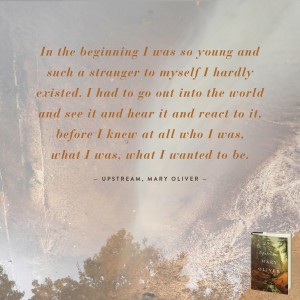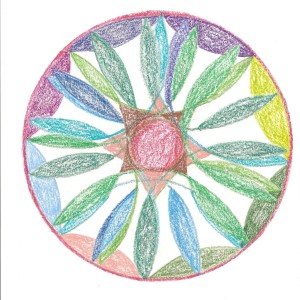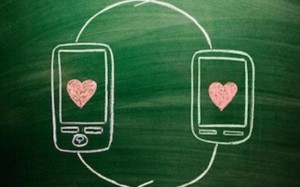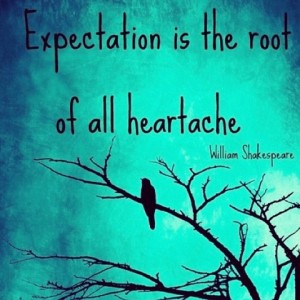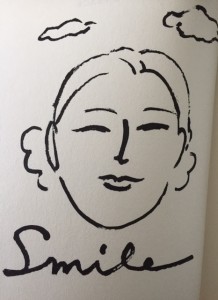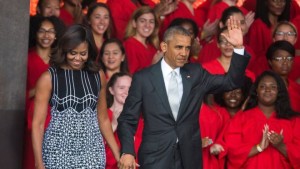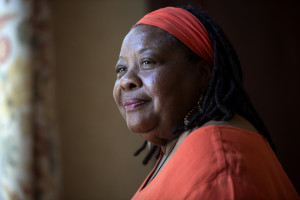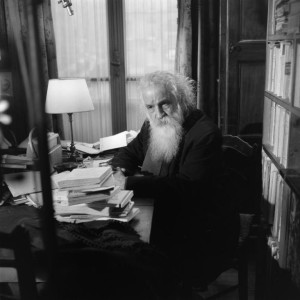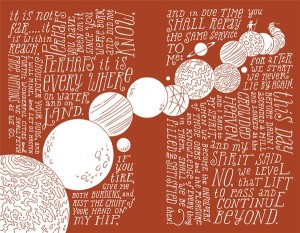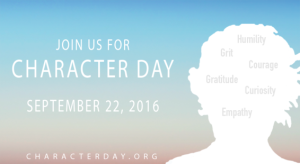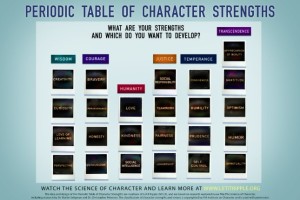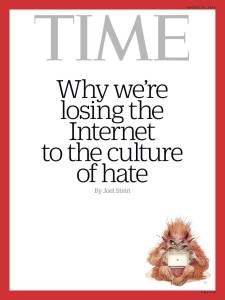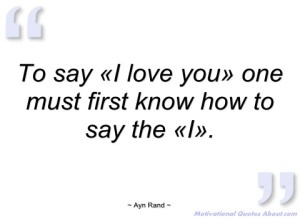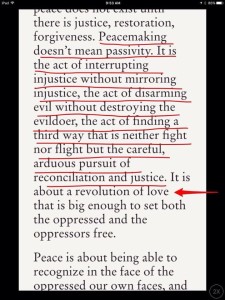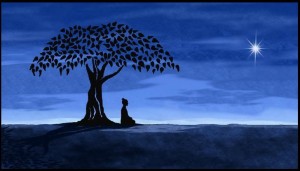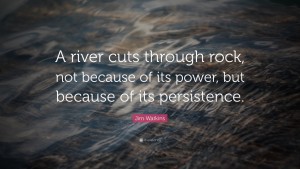September 28, 2016
A beautiful reminder to be tender with young hearts. And those still discovering.
❥
That which is little…
‘Today my eyes are open more widely and I look out upon a broader horizon. Across all the experiences I may have had that were limited or unpleasant I now see the rosy hue of a new dawn. Letting go of that which is little, I now enter into a larger concept of life. Realizing that every form of uncertainty is seeing only in part, I open my spiritual eyes to that which is wholeness, which is greater and better.’
<Science of Mind>
‘I commit to a lifetime of ongoing conversion and transformation, recognizing that I am always on a journey with both gifts and limitations.’
<Monk Manifesto>
?
September 26, 2016‘Always be a little kinder than necessary. It’s the only way we’re going to climb out of this hole.’
-“Peter Pan” author J.M. Barrie
Computer Mediated Loneliness & Infidelity
Maybe it was when a facebook message was inadvertently sent to me, on my birthday, on my first night, in my new location, of Port Angeles, Washington. The message spoke of donuts, a road-trip, and love. The ‘love’ part was in Italian. I don’t speak or read Italian, but love in any language is love. In Italian, it is spelled a-m-o-r-e. The intended and I do not have similar names – – our names don’t even begin with the same letter. I think there were synchronous dialogues and one too many message windows open. And. Well. Happy birthday to me.
I picked up a book about five years ago to incorporate into my COMM classes when teaching to computer mediated communication. It’s titled, Infidelity on the Internet/Virtual Relationships and Real Betrayal, by Dr. Marlen Maheu, and Rona Subotnik. Being unfaithful to a partner has typically invoked the idea of a physical action between two people not married, or committed to each other – – a broken promise of fidelity then shrouded in secrecy and deception. With the rapid and ubiquitous development of virtual communications, infidelity, according to Maheu and Subotnik, is a behavior recognized on the Internet although there is no physical contact. For me it translates to an emotional infidelity – – equally devastating. Boundaries from platonic to romantic relationships are being blurred in what is being called “turbo-charged” exchanges where “feelings of intimacy” can develop in a flash. It may be virtual but impact on real-life relationships is real and dramatic. Yep. I concur.
I could swan dive here into thoughts and expressions of heartbreak and expectations, but I won’t (too sad). Instead, how about exploring the loneliness epidemic sweeping our nation, even though we are more connected than at any other time in history? Research reveals this epidemic of loneliness is making us mentally and physically ill. The Atlantic magazine published an on-line (of course) article in May 2012, “Is Facebook Making Us Lonely?’”, by Stephen Marche. In short, yes. It is. We are living in isolation having never been more accessible. On facebook that birthday night, I had dozens of happy birthday messages from ‘friends’, yet I don’t remember feeling as lonely, or deeply hurt, as I did in that moment. Remember the final scene in the film, The Social Network, about fb founder Mark Zuckerberg? It shows Zuckerberg sitting at his computer, alone, it’s late, and he is continually refreshing the profile picture of his lost love, hoping she’ll ‘accept’ his friend request. It is haunting. And sad. And very real. A little light research reveals some 1.71 billion people on our planet are ‘active’ fb users – – active being those who have logged in within the last 30 days. For many, more likely ‘minutes.’ The basic premise of the article is that in a world of communication that is instant and absolute we suffer from unprecedented alienation. So, although consumed by socializing in virtual connection, we are becoming lonelier.
How many times have I deleted my account, only to return within the 14-day window of grace before complete disconnection? My reasons for returning are rationalized through need of academic and professional connection, yet I am concerned, and interested, in the psychological aspect of loneliness here. If loneliness indeed is a psychological state, not an external condition, then what is the connection between loneliness and our computer mediated communication? Why are Americans over the age of 45 almost three times more lonely then a decade earlier? Research has given us some perspective. Virtual communication lacks face-to-face communication and therefore is not truly considered ‘social.’ We meet fewer people, we gather less, and when we do gather, the interpersonal dynamic is “less meaningful”, and “less easy.” We have few friends, but more ‘friends.’ We’re becoming socially awkward when we meet and greet. It’s easier when we communicate via screens because feedback can be messy, and when communicating on-line, non-verbal communication is non-existent, and non-verbal communication is about 90% of the communications process.
Internet communication is having an effect on our feelings of isolation and loneliness. And our need for therapy. In the late ‘40’s, according to Marche, the US had about 2,500 clinical psychologists, and about 30,000 social workers. Today? 77,000 psychologists, and 192,000 social workers. And the psychological component affects the physical body with earlier aging, hormonal imbalances, inflammation issues, and memory loss. And then there’s depression and sleep deprivation, also increases in dementia and cognitive decline. Delete! Deactivate! But we don’t. Instead, we buy more and more gadgets so we can stay more and more ‘connected.’ We have the opportunity to connect, but with little human contact. The Internet paradox.
That night on my birthday, if I would have had those dozens and dozens of ‘friends’ hanging out with me in my hotel room eating birthday cake, and drinking champagne, that would have been a party. And a fun one. Instead, I felt the pain of Internet infidelity, profound isolation and loneliness. I also realized that I had become a partner in the virtual betrayal dance, because the one meant for the Italian love was in a physical face-to-face relationship with my love, as mine became virtual due to years of physical absence. It was a relationship, I thought, virtually exclusive, when in reality, it was exclusively virtual.
It isn’t the machine that makes us lonely. It’s how we use it. We shop online, we bank online, we take classes online, we can even attend concerts and spiritual services online, without ever being present with another sentient being. Human interactions can be messy, virtual connections are intensely mediated and created around our design of self. Sherry Turkle is a MIT professor of computer culture, who has written a number of books on Internet connection and interaction, explains it like this: “The problem with digital intimacy is that it is ultimately incomplete; the ties we form through the Internet are not, in the end, the ties that bind.” If we are “insecure in our relationships and anxious about intimacy,” Turkle adds, “we look to technology for ways to be in relationships and protect ourselves from them at the same time.”
Not to get off track here, but it’s interesting to note that personality profiles of the fb user are being studied and there appears to be a strong narcissism component. Yikes. Marche writes, “It could be argued that Facebook specifically gratifies the narcissistic individual’s need to engage in self-promoting and superficial behavior.” Definition refresher. Narcissism reveals patterns of grandiosity, craving for attention, and lack of empathy. This article was written pre-presidential candidate Trump. Anyone else make the connection?
Solitude is not loneliness. And being alone is not always lonely. But if we’re using computer mediated communication as an isolated means of staying connected, we’re stepping into a virtual world that could make us lonely, or lonelier, in our real world.
I have never connected to on-line dating sites, or found a platonic on-line relationship morphing into a romantic one. My friend, who revealed his infidelity on my birthday was once my real-life love. And when he moved to San Francisco, we moved our connection on-line. He was writing, I was teaching, on the radio and my kids were finishing up the last couple of years of high school. I re-located to Washington State arriving on my birthday, August 5th. I chose a beautiful place in this new chapter of my life, expecting my friend, my love, would soon be with me in the Pacific Northwest, a land he loves, too.
What’s that quote by William Shakespeare? ‘Expectation is the root of all heartache.’ And maybe, too, for loneliness. If we expect our virtual connections to fulfill our need for human, face-to-face interaction, and we expect those ties to bind, we will only be heartbroken to discover that they don’t. I did.
-Dayle Ohlau
Ever so near…
Smile, even though it’s breaking.
Though there are clouds in the sky,
you get by…If you smile through your fears and sorrows.
Smile and maybe tomorrow
You’ll see the sun come shining through.If you just light up your face with gladness,
Hide every trace of sadness.
Although a tear may be ever, ever so near.That’s the time you must keep on trying.
Smile, what’s the use of crying?
You’ll find life is worthwhile
If you’ll just smile, come on and smile.
This day.
September 24, 2016The Smithsonian National Museum of African-American History and Culture opens today in Washington DC.
“Speaking on Friday, Mr Obama said the new museum would educate Americans about the history of the racial tensions seen during protests over police killings of black men.
“As a people, we’ve rightfully passed on the tales of the giants who built this country,” Mr Obama said during his weekly address to the American people.
“But too often, wilful or not, we’ve chosen to gloss over or ignore entirely the experience of millions upon millions of others.” He added: “And so it is entirely fitting that we tell this story on our National Mall, the same place we tell the stories of [President George] Washington and [President Thomas] Jefferson and our independence.”
The bronze-coloured museum, designed by British architect David Adjaye, is located on Washington’s National Mall – not far from the White House.
It contains 36,000 items, ranging from trade goods used to buy slaves in Africa to a segregated railway car from the 1920s and a red Cadillac convertible belonging to rock’n’roll pioneer Chuck Berry.
Black veterans of the US Civil War first proposed an African-American museum in 1915.
However, it was not until 2003 that Congress approved its creation. Construction of the 37,200 sq m building took almost four years.”
BBC NEWS
Where does it hurt?
September 19, 2016
That’s a question the civil rights icon Ruby Sales learned to ask during the days of that movement. It’s a question we scarcely know how to ask in public life now, but it gets at human dynamics that we are living and reckoning with. At a convening of 20 theologians seeking to reimagine the public good of theology for this century, Ruby Sales unsettles some of what we think we know about the force of religion in civil rights history, and names a “spiritual crisis of white America” as a calling of this time.
Ruby Sales/Veteran’s of the Civil Rights Movement
<On Being>
http://www.onbeing.org/program/ruby-sales-where-does-it-hurt/8931
‘…sudden inflection of human genius.’
French philosopher Gaston Bachelard:
Whether it comes from suffering, or whether it comes from joy, we all experience as human beings this moment of illumination at some point in our lives: a moment when we suddenly understand our own message, a moment when knowledge, by shedding light on passion, detects at once the rules and relentlessness of destiny — a truly synthetic moment when decisive failure, by rendering us conscious of the irrational, becomes the success of thought. That is the locus of the differential of knowledge, the Newtonian burst that allows us to appreciate how insight springs forth from ignorance — the sudden inflection of human genius upon the curvature of life’s progress. Intellectual courage consists in actively and vitally preserving this instant of nascent knowledge, of making it the unceasing fountain of our intuition, and of designing, with the subjective history of our errors and faults, the model of a better, more illuminated life.
<Maria Papova>
❥
September 18, 2016‘Two things are infinite: the universe and human stupidity; and I’m not sure about the universe.’
-Albert Einstein
Dear Walt.
September 15, 2016“America, if eligible at all to downfall and ruin, is eligible within herself, not without… Always inform yourself; always do the best you can; always vote.”
-Walt Whitman
Character Day ~ 2016
What is Character Day?
‘Over 70,000 groups in 96 countries have already signed up for the third annual Character Day, set for September 22, 2016. Character Day is a free annual day and global initiative where groups around the world screen films on the science of character development from different perspectives (including The Science of Character, The Adaptable Mind, and The Making of a Mensch), dive into free printed discussion materials, and join an online global conversation around the importance of developing character strengths (resilience, grit, empathy, courage, kindness)–all rooted in evidence-based research. Character Day is one day. The resources are available year-round. Sign up your school, classroom, organization, company, congregation, or family to participate. Signing up takes two minutes and Character Day is completely free.’
A culture of hate.
September 14, 2016
“One can see discourse norms shifting online, and they’re probably linked to behavior norms. When people think it’s increasingly O.K. to describe a group of people as subhuman or vermin, those same people are likely to think that it’s O.K. to hurt those people,” says Susan Benesch, founder of the Dangerous Speech Project and faculty associate at Harvard’s Internet and Society center.
[…]
“…trolling has become the main tool of the alt-right, an Internet-grown reactionary movement that works for men’s rights and against immigration and may have used the computer from Weird Science to fabricate Donald Trump.”
[…]
“When sites are overrun by trolls, they drown out the voices of women, ethnic and religious minorities, gays–anyone who might feel vulnerable. Young people in these groups assume trolling is a normal part of life online and therefore self-censor. An anonymous poll of the writers at TIME found that 80% had avoided discussing a particular topic because they feared the online response. The same percentage consider online harassment a regular part of their jobs. Nearly half the women on staff have considered quitting journalism because of hatred they’ve faced online, although none of the men had. Their comments included “I’ve been raged at with religious slurs, had people track down my parents and call them at home, had my body parts inquired about.” Another wrote, “I’ve had the usual online trolls call me horrible names and say I am biased and stupid and deserve to be raped. I don’t think men realize how normal that is for women on the Internet.”
[…]
“A Pew Research Center survey published two years ago found that 70% of 18-to-24-year-olds who use the Internet had experienced harassment, and 26% of women that age said they’d been stalked online. This is exactly what trolls want. A 2014 study published in the psychology journal Personality and Individual Differences found that the approximately 5% of Internet users who self-identified as trolls scored extremely high in the dark tetrad of personality traits: narcissism, psychopathy, Machiavellianism and, especially, sadism.”
Full article:
How Trolls Are Ruining the Internet
David Whyte.
FORGIVENESS
is a heartache and difficult to achieve because strangely, the act of forgiveness not only refuses to eliminate the original wound, but actually draws us closer to its source. To approach forgiveness is to close in on the nature of the hurt itself, the only remedy being, as we approach its raw center, to reimagine our relation to it.
It may be that the part of us that was struck and hurt can never forgive, and that forgiveness itself never arises from the part of us that was actually wounded. The wounded self may be the part of us incapable of forgetting, and perhaps, not meant to forget…
Stranger still, it is that wounded, branded, un-forgetting part of us that eventually makes forgiveness an act of compassion rather than one of simple forgetting…
Forgiveness is a skill, a way of preserving clarity, sanity and generosity in an individual life, a beautiful question and a way of shaping the mind to a future we want for ourselves; an admittance that if forgiveness comes through understanding, and if understanding is just a matter of time and application then we might as well begin forgiving right at the beginning of any drama, rather than put ourselves through the full cycle of festering, incapacitation, reluctant healing and eventual blessing.
…at the end of life, the wish to be forgiven is ultimately the chief desire of almost every human being. In refusing to wait; in extending forgiveness to others now, we begin the long journey of becoming the person who will be large enough, able enough and generous enough to receive, at our very end, that necessary absolution ourselves.
‘FORGIVENESS”
Excerpt from CONSOLATIONS
